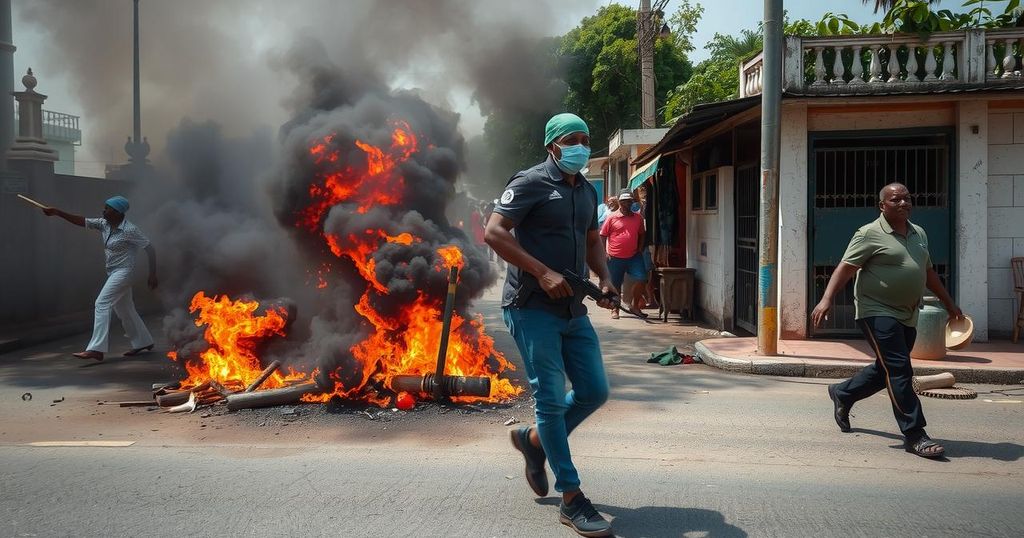Mozambique Plunges into Violence Following Disputed Election Ruling
Mozambique experienced severe violence after the Supreme Court confirmed Daniel Chapo as the winner of the disputed election, resulting in at least 21 deaths, including two police officers. The chaos erupted predominantly among supporters of the losing candidate, Venancio Mondlane, with over 236 reported violent incidents in a single day.
Mozambique has descended into violence following the confirmation of Daniel Chapo as the winner of the disputed elections held on October 9. The announcement by the country’s highest court has sparked protests and unrest, leading to a tragic toll of at least 21 fatalities, including two police officers, according to authorities. Interior Minister Pascoal Ronda highlighted that the protests have predominantly involved young supporters of the defeated candidate, Venancio Mondlane, who garnered only 24 percent of the votes compared to Chapo’s 65 percent. A disturbing count of 236 incidents of violence was reported within a single day following the ruling, and both civilian and police casualties have been noted.
The elections in Mozambique have drawn significant attention and controversy, particularly in the wake of allegations regarding the fairness of the electoral process. The ruling Frelimo party, long in power, faced opposition from various candidates, including Venancio Mondlane of the RENAMO party. The judicial confirmation of Chapo’s victory has provoked a fierce backlash among supporters of the opposition, highlighting deep political divisions within the country. Understanding these tensions is crucial to grasping the current violence and unrest that have erupted in the aftermath of the court’s decision.
The situation in Mozambique remains volatile as the aftermath of the election ruling has triggered widespread violence and protests. With significant casualties reported, including the deaths of police officers and civilians, the need for stability and dialogue becomes increasingly urgent. The unrest signals profound discontent among segments of the population, particularly the youth, reflecting larger concerns regarding democratic processes and governance in Mozambique.
Original Source: www.nytimes.com




Post Comment